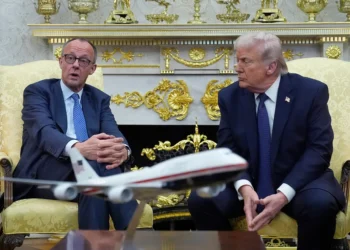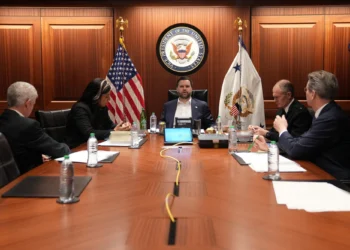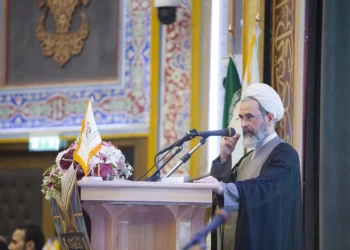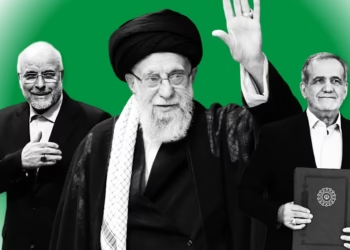WASHINGTON (Realist English). A growing chorus of U.S. officials from both political camps is expressing deep frustration with Andriy Yermak, chief of staff to Ukrainian President Volodymyr Zelenskyy, accusing him of undermining Kyiv’s standing in Washington at a time when continued U.S. support remains critical to Ukraine’s survival.
According to more than a dozen sources, including current and former American and Ukrainian officials, Yermak has become an increasingly problematic figure for the Trump administration. He is described as abrasive, politically tone-deaf, and disconnected from the complex dynamics of Capitol Hill — a sharp liability in a moment when Kyiv’s access to military aid and diplomatic backing is under pressure.
Yermak has made frequent trips to the U.S. capital since the Russian invasion began in 2022, serving as Zelenskyy’s top envoy and gatekeeper. But his most recent visit in early June, insiders say, was a debacle. He struggled to secure key meetings, arrived without a clear agenda, and faced snubs from top officials — including Vice President JD Vance’s team, which never responded to a meeting request. A scheduled meeting with Secretary of State Marco Rubio, who also acts as national security adviser, was abruptly canceled. A brief hallway encounter was later posted online by Yermak as if it had been official.
“The visit was a disaster from the Ukrainian perspective,” said one official familiar with the talks. Another called Yermak an “existential liability” to Ukraine’s U.S. relationship.
Yermak, in a statement, defended his actions as part of his mission to secure support for Ukraine: “If that means being considered ‘challenging’ by others — so be it. I will wait many more hours outside any door if that helps my country.” He added that he has “no ambition to fully grasp how American politics works.”
But that approach appears increasingly untenable. With Donald Trump applying greater pressure on Ukraine to enter peace negotiations with Vladimir Putin, and signaling a shift in U.S. priorities, Washington insiders warn that Yermak’s conduct could further erode bipartisan willingness to keep arming Kyiv.
Even under the Biden administration, where there was more willingness to work with Zelenskyy’s inner circle, frustration with Yermak ran high. Former Secretary of State Antony Blinken and then-U.S. ambassador to Ukraine Bridget Brink reportedly asked for meetings with Zelenskyy to proceed without Yermak present — requests that were denied by the Ukrainian president. Multiple U.S. officials accused Yermak of filtering or distorting communications between Zelenskyy and Washington.
One source said that Yermak, a former film producer, believed a joint critical minerals fund would win Kyiv U.S. security guarantees — an idea dismissed by American officials as “ludicrous.” Privately, Yermak has even accused some U.S. figures, including Trump’s Middle East envoy Steve Witkoff, of acting as Russian assets.
Yermak did manage to meet with some U.S. officials, including Trump’s special envoy to Ukraine, Gen. Keith Kellogg, and Deputy Secretary of State Christopher Landau, and was said to be unusually cooperative in those meetings. But the broader perception was one of failure. “There is serious mistrust with the Zelenskyy administration at this moment,” said Ron Wahid, head of Arcanum Global and a backchannel adviser to the peace process. “This will not be repaired by haphazard visits with no strategy.”
Despite the backlash, David Arakhamia, leader of Zelenskyy’s Servant of the People party in parliament, defended Yermak, calling his trip a success and praising his contacts and diplomatic skills. But some within the Republican establishment believe Yermak’s continued presence could play into the hands of those seeking to cut off Ukraine entirely.
“All the people here who want to withdraw and abandon Ukraine,” said one source, “are thrilled to have Yermak around.”


















